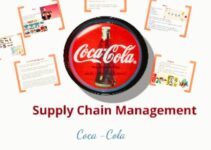Dyson Limited is a technology and home appliances manufacturing UK’s multinational company. James Dyson laid the foundation of the technology company in 1991. Today, we’ll discuss the value chain analysis of Dyson supply chain analysis; primary and supporting activities in the process of value chain analysis Example Company. They are inbound and outbound logistics, operations, marketing, and customer service; infrastructure, HRM, technology, and procurement as an application of the value chain analysis process.
Production material for Dyson
- Recyclable material (85%)
- Plastic
- Motor
- Carbon nanomotor
- Silicon
- Titanium alloy
- Fire ice
- Hydrogen
- Sulfuric acid
Production and manufacturing units of Dyson
- Malaysia
- Singapore
- Philippines
- Mexico
- China
Suppliers and distributors of Dyson
- Online marketplace and e-commerce store
- Retail stores
- Web platform
- Dyson wholesale distributors
Technology for Dyson products
- Root cyclone technology
- Dyson digital motor
The Value chain analysis of Dyson supply chain analysis would analyze the primary and supporting activities in the process of value chain analysis. They’re inbound and outbound logistics, operations, marketing, and services; infrastructure, HRM, technology, and procurement. Here’s supply chain analysis of Dyson value chain analysis company example as follows;
Value Chain Analysis of Dyson
Let’s discuss the primary and supporting activities involved in the process of value chain analysis of Dyson supply chain analysis. It is an application of value chain analysis based on Porter’s model; some of the key elements and components of value chain analysis are as follows;
Primary Activities of Dyson
Some of the five main primary activities in the value chain analysis of Dyson supply chain analysis are as follows;
Inbound Logistics of Dyson
I-Sourcing Suppliers
Dyson collaborates with various sourcing suppliers to procure raw materials and supplies, instead of sourcing and procuring them directly. The company deals with hundreds of suppliers in various countries to ensure smooth raw supplies without any disruption.
II-Suppliers Training Programs
Dyson conducts training programs for its suppliers in Mexico, China, the USA, Europe, the UK, and the Philippines. The objective is to improve their skill and expertise; and to make sure that the suppliers are engaging in ethical practices, not exploiting forced labor, and not engaging in modern slavery. In fact, the company has developed a code of conduct for spreading awareness about modern slavery and the suppliers aren’t part of it.
III-Auditing Suppliers
Along with supplier training, Dyson carefully audits and evaluates its supply chain network. The audit program comprises of following elements and they’re as follows;
- Environmental and ethical code of conduct
- Improving working conditions
- No forced labor
- No modern slavery
- Complying with human rights standards
- Not charging recruitment fees from workers
If the suppliers fail to comply with the company’s audit program two consecutive times, then Dyson will impose sanctions and won’t partner up with suppliers until they pass it next time.
Outbound Logistics of Dyson
I-Wholesale Distributors
Dyson employs various wholesale distributors in various to deliver its products and goods to the retail stores from the manufacturing facilities. The company remains in close contact with the distributors and retail store network to make its products available in various stores for end consumers.
II-Shipment and Delivery
Dyson employs multiple shipment and delivery channels depending on the home address of the customers. The order processing and shipping time ranges from 1 or 2 working days to 2 or 3 weeks depending on the total distance and location of the customers. Customers could easily place orders online from the company’s e-commerce store.
Operations of Dyson
I-Production Facilities
Dyson has set up production and manufacturing units and also employs contractual production workers in various countries worldwide. They’re like Malaysia, Mexico, China, the USA, Europe, the UK, and the Philippines. There is no doubt that forced labor is high in Southeast Asian countries; the company makes sure that its production units are engaging in ethical practices.
II-Sustainable Practices & Recyclable Material
Dyson has made a strong commitment to environmental sustainability. According to an estimate, the company employs 85% of the recyclable material for the production and manufacturing works. The company is developing high-performing machines that are efficient, rather than making them disposable.
Some of the main sustainable initiatives of the company are as follows;
- Educational programs
- James Dyson Awards
- Dyson Foundation (charity project)
- Renewable building
- Dyson sustainable farming
Marketing & Sales of Dyson
I-Multiple Channels
Dyson employs multiple media channels for making and promoting its household appliances products and services. They are like online streaming, influencer collaboration, social media platforms, word-of-mouth marketing, and other media channels. However, the objective of all these channels is to amplify the company’s products appliances, and brand reach and approach new segments of the customer market.
II-Retail Stores
Dyson has established a network of 2 retail stores to offer the live experience of the company’s household appliances and machines to customers. The company plans to build more stores in the new markets across the world.
Services of Dyson
Dyson offers a wide range of services to customers. This is because there are multiple things that could happen to the brand’s machines. However, some of them are as follows;
- Repair service
- Return
- Product safety recall
- Product Warranty
- Machine tech support
- Customer support service
Supporting Activities of Dyson
Some of the main supporting activities in the value chain analysis of Dyson supply chain analysis are as follows;
Infrastructure of Dyson
Dyson has established a very large infrastructure comprising production and manufacturing units, research and development facilities, distribution network, retail operations, and after sale services. Such massive and mega-scale infrastructure helps the company to smoothly perform its hundreds of operations in various countries across the globe.
HRM of Dyson
Dyson has employed approximately 14000 employees across the world. The human resource management department of the company plays a key role in building and recruiting a diverse workforce and maintaining a creative and healthy workplace environment.
Technological Development of Dyson
Dyson invests a significant amount of capital resources in research and development and technological innovation. It allows the company to set up efficient, durable, and long-lasting machines and household appliances for the customers. However, the objective is to build the latest technological tools and equipment that would make lives easier for everyone.
Procurement of Dyson
Dyson is highly cautious about ethical sourcing and procurement, and the company doesn’t do it directly. However, the company makes sure that its suppliers are engaging in the right practices and complying with human rights standards.
Conclusion: Dyson Value Chain Analysis Example Company | Application of Value Chain Analysis Process
After an in-depth study of the value chain analysis of Dyson; we have realized that Dyson is the world’s leading technology and household appliances manufacturing company. If you are learning about the Dyson value chain analysis example company; then you should keep in mind the abovementioned primary and supporting activities. They’re inbound and outbound logistics; operations, marketing and sales, and services; infrastructure, procurement, HRM, and technological development as an application of the value chain analysis process.
Ahsan is an accomplished researcher and has a deep insight in worldly life affairs. He goes Live 3 days a week on various social media platforms. Other than research writing, he’s a very interesting person.


